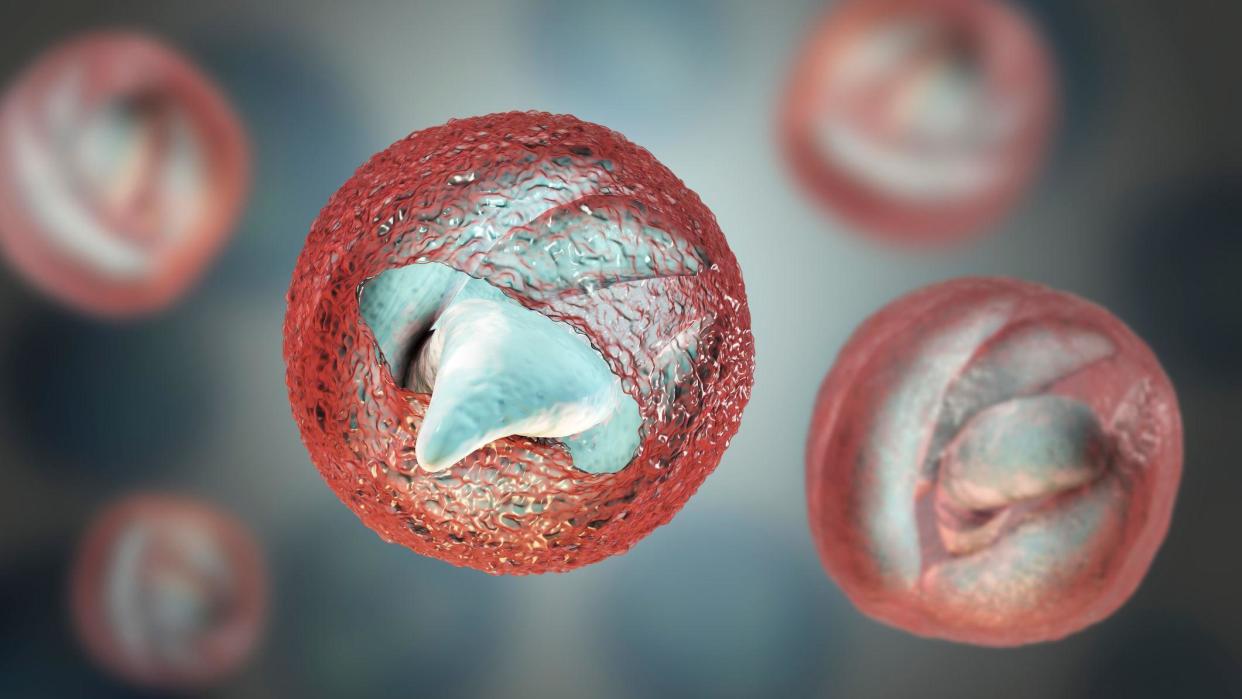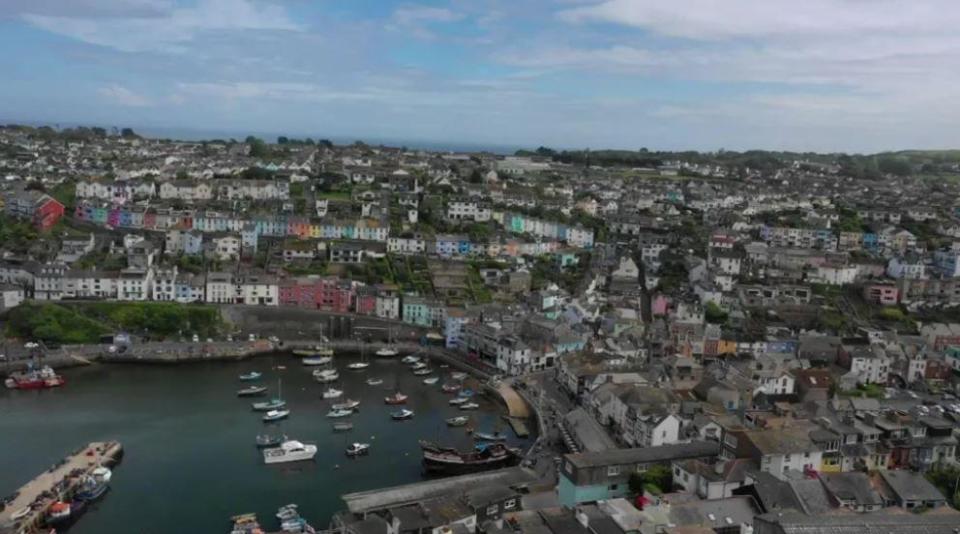What is the water parasite making some people ill?

Health authorities are investigating after a number of people in Devon tested positive for a microscopic parasite which can cause stomach upsets.
The UK Health and Security Agency says it is trying to find the source of the outbreak of cryptosporidium.
What is cryptosporidium parasite and how dangerous is it?
Cryptosporidium is a tiny organism that causes an illness in people and some animals, health officials say.
It is found in human and animal poo and can contaminate waterways, swimming pools, raw milk and fresh produce, the UK Health Security Agency (UKHSA) says.
Anyone can get infected and there is no effective drug treatment for cryptosporidiosis, with the main symptom being prolonged diarrhoea.
Prof Paul Hunter, a specialist in microbiology and infectious disease from the University of East Anglia, says most people recover after a couple of weeks but it can be deadly for a small number of people with severely weakened immune systems.
He says most people will not need to see a doctor unless they are seriously unwell or a child.
Where has it been found in Devon?
"Small traces" of the parasite were found in Brixham in south Devon, South West Water says.
The water company says it is investigating a reservoir in the area as the potential cause for the outbreak, with 46 cases of cryptosporidiosis confirmed so far.
On Wednesday the firm issued an urgent boil water notice to about 40,000 residents following positive samples.
More than 100 people had reported symptoms to their GP in the past week, the UKHSA says.
There are no other major outbreaks in the UK at the present time.
Is drinking water the only source of outbreaks?
Cryptosporidiosis can affect 3,000-6,000 people a year across the UK, according to the latest available data.
Prof Hunter, who sits on a World Health Organization committee on drinking water quality, says outbreaks are less common these days after new laws were brought in forcing UK water companies to do more testing for cryptosporidium.
However, he says data on outbreaks is no longer regularly published.
"It is often difficult to know how many outbreaks we are seeing," he says.
"Drinking water isn't the only cause of outbreaks, we see outbreaks in swimming pools quite often, there have been outbreaks associated with drinking unpasteurised milk, and we see outbreaks in nurseries."

What should you do if cryptosporidium is found in your area?
Thousands of residents are being advised to boil their water before using it for drinking, cooking, preparing food or brushing teeth.
South West Water says water does not have to be boiled if it is for washing, bathing and flushing the toilet.
People are also advised to thoroughly wash their hands with soap and warm water before handling food and after going to the toilet or touching animals, the UKHSA says.
Cryptosporidiosis is "highly infectious" and those who have symptoms should wash their clothes on the hottest possible setting and not share towels with anyone, according to the guidance.
People with the illness should not go swimming for at least two weeks after the diarrhoea has stopped.
What are the symptoms of cryptosporidium?
According to government advice, the main symptoms of cryptosporidium include:
profuse watery diarrhoea
stomach pains
nausea or vomiting
low-grade fever
loss of appetite which can lead to dehydration and weight loss
Symptoms are similar to other stomach bugs and the only way to confirm the illness for sure is by a doctor sending a sample of your faeces to be tested in a laboratory, according to health officials.
How do you treat cryptosporidium?
Dr Lincoln Sergeant, the director of public health for Torbay Council, says it is key for people to stay hydrated if they are infected by the parasite.
People in the affected area should boil their water until further notice, he says.
"For the vast majority of people this is an unpleasant illness but it will usually resolve itself in a couple of weeks," he says.
"Clearly we want them to remain hydrated, and if people manage their symptoms well, they will recover without any problems."
Follow BBC Devon on X (formerly Twitter), Facebook and Instagram. Send your story ideas to spotlight@bbc.co.uk.

